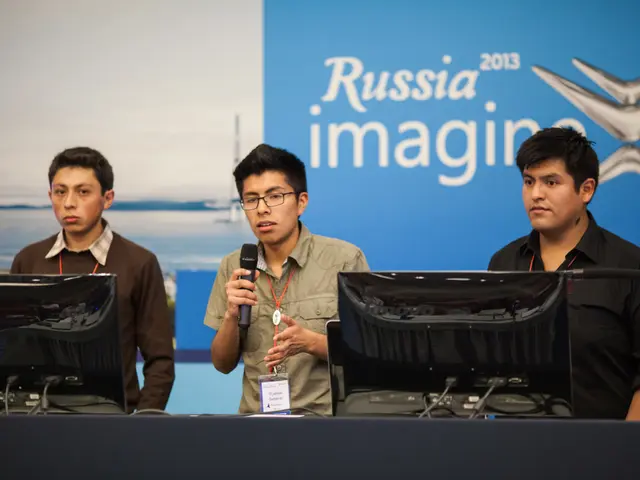AI's Overlook of Ancient Wisdom: The Gap Between Ages of Scrolls and Silicon Valleys
Dive into the magical realm of ancient wisdom, the enigmatic secrets that have guided civilizations for ages. Suddenly, you find yourself face to face with AI, the digital wonders of modern times. But what happens when you ask this steel and silicon miracle to explain the essence of ancient wisdom? Bam! You get a bunch of facts devoid of the very soul that breathes life into these secrets. Why do artificial intelligence, with its vast processing powers, stumble when deciphering these timeless mysteries, intricacies, and the living essence of ancient wisdom? Let's journey deep into this peculiar conundrum, unraveling the reasons behind AI's failure to capture the spirit of the ancient scrolls within the cold language of silicon.
The Rhythm of Oral Traditions
Long ago, before the written word reigned supreme, knowledge was passed down through ages like a whispered secret, carried on the breath of elders and storytellers. These weren't merely lessons in facts and figures; they were emotional performances, rich with gestures, dramatic pauses, and human emotion. A grandmother's haunting voice could turn a mere lesson into a living, breathing tale. AI, despite its sophistication, processes words as mere data, not as songs, dances, or emotional crescendos. It calculates, catalogs, but cannot feel the chills running down your spine as you hear a tale spun by moonlight.
The Puzzle of Context and Culture
Ancient wisdom is deeply rooted in the earth and time from which it grew. For instance, a Chinese proverb, grounded in the rhythms of rice planting, would lose its charm if it were torn away from its cultural roots. AI often misses these subtleties, choosing universal translations over preserving the rich cultural essence of these ancient ideas. Like uprooting a tree only to find a bald, lifeless twig, AI's interpretation loses much of the flavor that makes ancient wisdom so tantalizing.
The Dance of Symbols
Ancient texts are full of symbols, each one a living metaphor with multiple layers of meaning. A snake might symbolize transformation, a river could represent the passage of time, and a mountain signified spiritual ascent. AI can identify these symbols, but it struggles to appreciate their multifaceted significance. It treats them as stark, lifeless images, not dancing, evolving metaphors. Like attempting to appreciate the beauty of a rainbow by simply counting its colors, AI falls short.
Silence Is Golden
Silence often paves the way for contemplation in ancient wisdom. Ellipses, hints, and riddles were common, inviting the listener to reflect beyond the spoken word. AI, on the other hand, feels the need to fill gaps and define the unknown. The breathless moment of silence is a sacred pause missed by AI.
The Joy of Imperfection
Learning by doing was a core aspect of ancient wisdom. Skills like weaving, herbal medicine, or martial arts were not learned from rigid lessons but through hands-on practice. AI can create tutorials, but it cannot replicate the feeling of clay beneath your fingers or the ache in your arms after endless hours at the loom. The richness of learning by doing, failure, and persisting again, remains beyond the grasp of AI.
The Humility of Ignorance
Ancient wisdom frequently embraced the unknown, exploring the realm of dreams, omens, and visions. AI, however, yearns for clarity and rationality. This struggle with the unknown, this acceptance of the awe-inspiring mysteries, is typically overlooked by AI in its quest for certainty.
The Ethical Backbone of Tradition
Much of ancient wisdom is fundamentally moral, teaching not just about the world but about how we should live. These values were deeply woven into narratives, rituals, and proverbs. AI might summarize ethical theories, but it lacks the visceral understanding artfully imbued in ancient wisdom. Like a city without a soul, AI is devoid of emotion and experience.
The Power of the Communal
Learning was rarely a solitary act in ancient times. Elders, parents, and children gathered to share stories, forming bonds that spanned generations. AI, on the other hand, is a personalized tool, designed for individual use. It cannot replicate the warmth of shared learning or the trust fostered in communal wisdom.
In conclusion, while AI excels in raw computational power, it stumbles when it comes to capturing the essence of ancient wisdom—emotions, context, metaphors, and intuition, to name a few. AI is an incredible tool tailor-made for our modern world, but when it comes to understanding the living echoes of ancient wisdom, there's still a vast chasm to be bridged. Perhaps, the answer lies in a harmonious blend of ancient wisdom and modern technology, the perfect fusion of human experience and AI's awesome computational prowess. But in the meantime, let us cherish the ancient wisdom that stirs the soul, breathes life into silent scrolls, and whispers the secrets of ages past.
Maria Faith SaligumbaEnrichment Data:
Overall:
Key Differences Between Ancient Wisdom and Artificial Intelligence
1. ** Origins and Nature**
- Ancient Wisdom: Rooted in human experiences, philosophical traditions, and cultural practices, focusing on ethics, morality, empathy, and personal growth, often derived from spiritual or philosophical texts and teachings.
- Artificial Intelligence (AI): Developed through algorithms, computational power, and machine learning, based on data analysis, pattern recognition, and decision-making rules set by humans.
2. ** Purpose and Application**
- Ancient Wisdom: Primarily focused on personal development, ethical decision-making, and understanding human nature, guiding individuals in navigating complex moral and social issues.
- AI: Primarily used for efficiency, accuracy, and automation in various fields like healthcare, finance, and technology, excelling in tasks requiring data processing and pattern recognition.
3. ** Cognitive Abilities**
- Ancient Wisdom: Emphasizes human faculties such as empathy, intuition, and ethical judgment deemed essential for navigating complex social and moral landscapes.
- AI: While AI outperforms humans in certain cognitive tasks like memory and computation, it lacks the ability to replicate human emotions, empathy, and ethical judgment.
4. Dynamic Nature
- Ancient Wisdom: Evolves through cultural and historical contexts, adapting to societal changes while maintaining core principles.
- AI: Evolves through technological advancements, with its capabilities expanding rapidly, but limited by its programming and data, lacking dynamic adaptability.
- The inherent differences between artificial intelligence (AI) and ancient wisdom are rooted in their origins and nature, with AI being a product of algorithms, computational power, and machine learning, while ancient wisdom is deeply rooted in human experiences, philosophical traditions, and cultural practices.
- When it comes to purpose and application, ancient wisdom is focused on personal development, ethical decision-making, and understanding human nature, guiding individuals in navigating complex moral and social issues. On the other hand, AI is primarily used for efficiency, accuracy, and automation in various fields like healthcare, finance, and technology.
- Regarding cognitive abilities, ancient wisdom emphasizes human faculties such as empathy, intuition, and ethical judgment deemed essential for navigating complex social and moral landscapes, whereas AI, despite outperforming humans in certain cognitive tasks like memory and computation, lacks the ability to replicate human emotions, empathy, and ethical judgment.
- Finally, ancient wisdom evolves through cultural and historical contexts, adapting to societal changes while maintaining core principles. Meanwhile, AI evolves through technological advancements, with its capabilities expanding rapidly, but limited by its programming and data, lacking the dynamic adaptability that ancient wisdom exhibits.





